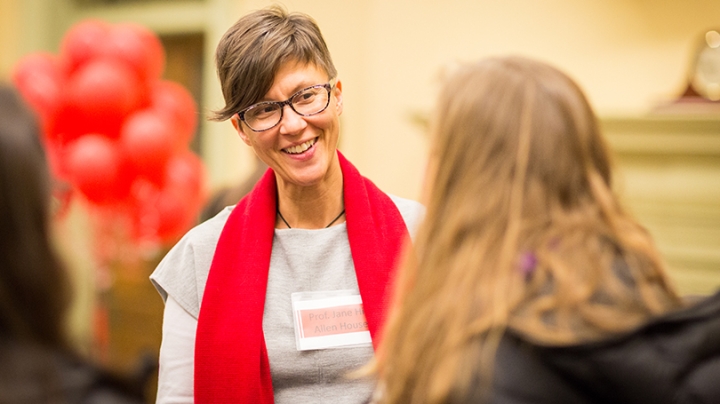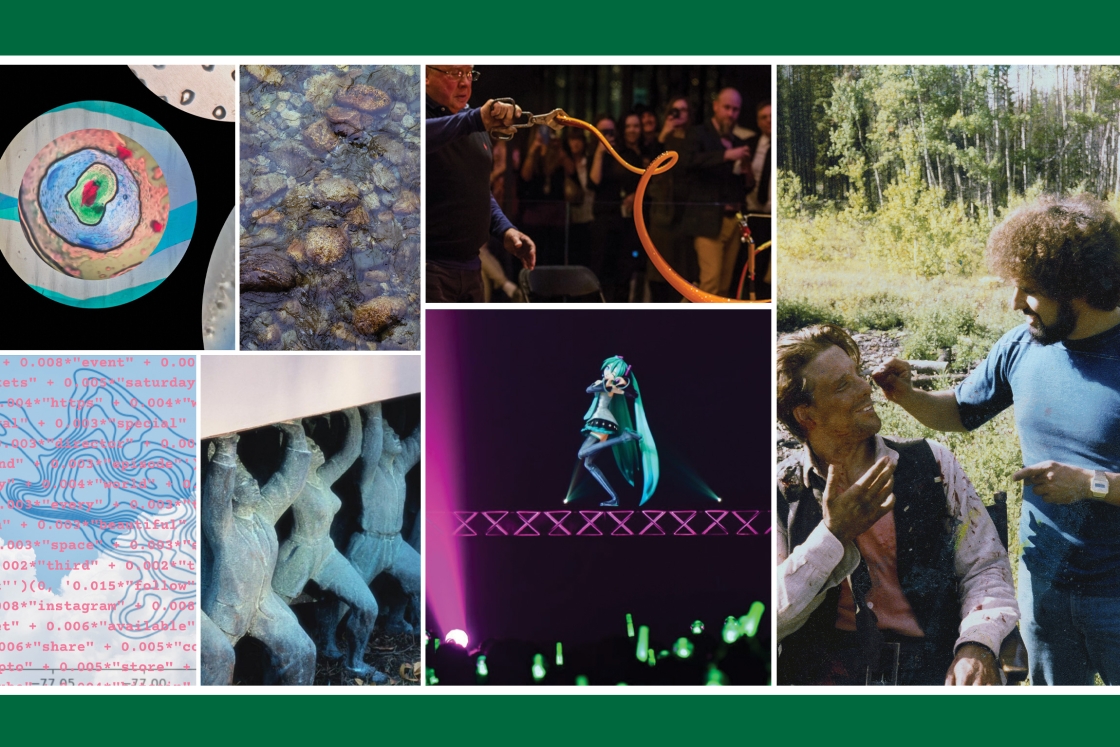Barbecues, music, House swag, lawn games, and cultural and social events for the Dartmouth community will kick off the College’s new residential house system on Friday, Sept. 16.
The celebrations, at the end of the first week of classes, will be a chance for all first-year students and upperclassmen, no matter where they live, to get together with the members of their residential house, and with house-affiliated faculty and staff.
“We are thrilled to be launching our new house communities,” says Dean of the College Rebecca Biron. “There’s a lot of excitement among students about the opportunities they’ll have to shape their house communities as the founding members. We can’t wait to see what they do!”
The free barbecue and kick-off concert on the Green, featuring the band The Mowgli’s, who are touring with singer Scott Helman, caps several weeks of intensive work by Dartmouth house professors, faculty, and staff, who have been welcoming first-year students to their new communities, getting them started in the new house-based academic advising system, and inviting them to take part in a series of social events, academic planning, and orientation activities, Biron says.
This is the inaugural term of the residential house communities, established as part of the Moving Dartmouth Forward initiative launched by President Phil Hanlon ’77 in 2015. The aim of the new system is to provide a permanent home base for all students, no matter where their Dartmouth careers take them, to foster greater faculty-student interaction beyond the classroom, and to give students opportunities to learn from and build relationships with fellow students from a wide range of backgrounds.
“Community building is much more than just offering events,” Biron says. “It’s important to create an environment where students can establish authentic relationships and learn from stories and life experiences that are different from their own. A lot of that isn’t scheduled. It happens as people get to know one another and identify as members of a common community.”
All Dartmouth students, regardless of where they live, are members of one of six house communities, each of which is based in a cluster of residential buildings with an affiliated faculty residence. The communities are: Allen House, East Wheelock House, North Park House, School House, South House, and West House. Members of the Living Learning Communities cluster, which also includes existing communities such as Triangle House and the Native American House, and a faculty residence, are also members of one of the six house communities.
House professors have been meeting for some time with the residents of their houses to come up with ideas for events and activities, and to open the door for these founding students to define the character and spirit of their house, Biron says.
Over the first weeks of the term, house communities will partner with the Hopkins Center for the Arts to host house-based outreach events with performers including the improvisational street dance group FLEXN, and singer-songwriter Martha Redbone. Students will begin using their extended living room spaces in each of the house centers, attend Dartmouth football’s home opener, meet for dinners at house professors’ homes, and start to plan their own events, she says.
- Starting at 6 p.m. on Sept. 16, each house will host a barbecue in the vicinity of that community’s residence hall featuring free food and drink, house gear including T-shirts and scarves, lawn games, and a chance to socialize with new people.
- The Mowgli’s concert on the Green is set to begin at 8 p.m. on Sept. 16. This is a joint event planned by the houses in conjunction with the student programming board and staff from the Collis Center for Student Involvement. After the concert, there is a Collis Common Ground after-party with the DJ Hot Dub Time Machine.
- On Sept. 17, from noon to 3 p.m., the Living Learning Communities will hold a carnival at the McLaughlin Cluster with food, music and events by the students to celebrate the new residential system and to promote the activities of the living learning communities, the Global Village, and the freestanding communities.

